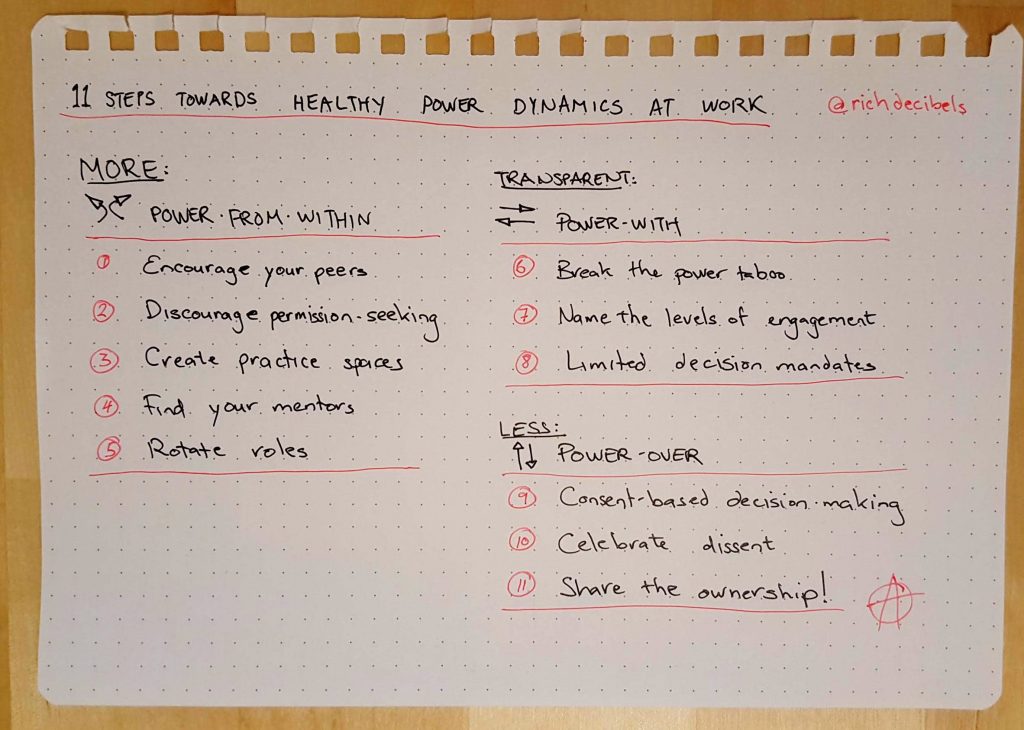Weeknote 06/2020
This week, I’ve been based at home, settling into my new rhythm of working for Moodle on Mondays, Tuesdays, and Fridays, and We Are Open co-op on Wednesdays and Thursdays. I have to say, I like it.
When I tell people that I’m part of a co-op, people are often interested in what I can only refer to as power dynamics. How do decisions get made? Who’s in charge? How do you allocate work?
I can certainly answer those questions, but it’s the difference between explaining, for example, the act of swimming verbally, and getting into the water and doing it yourself. Like goldfish, we forget the ‘water’ we already swim in is one that takes for granted coercive power relationships. Instead, with the co-op, as members we rotate roles and discourage permission-seeking.
This week, we realised that, given the amount of potential work coming in, we really needed a project management solution. In an organisation with coercive power dynamics, this would be decided by fiat, or by the ‘management team’.
In our co-op, we instead took a different approach. Some members of We Are Open are available to work almost full-time. Some, like me, are available a couple of days per week. Others, right now, have very little availability.
So we allowed those who would be using the project management solution the most, and who were most interested, to do the research, and then suggest an option.

This doesn’t have to be complicated, nor does it have to be based entirely on functional requirements. In the end, Gráinne Hamilton and I spent some time, both synchronously and asynchronously, with a few solutions.
What I found particularly interesting was that Gráinne and I had quite different requirements and assumptions going into this, but managed to find something that satisfied the collective needs of the co-op. (Note that the requirements down the left-hand side of the spreadsheet came from our meet-up in London the week before last.)
Once we’d chosen a solution to put forward, we shared our spreadsheet (which also included some comments you can’t see in the screenshot) and put it to a vote in Slack. The options were ‘Yes’, ‘No’, and ‘Need more info’. Every member voted in favour of our proposed solution, which in this case happened to be Monday.com.
When describing this kind of approach, people tend to call it ‘democratic’ and, to some degree, it is. But that’s just part of it. The main piece of the puzzle for me is ensuring alignment, which you get through healthy power dynamics.

This is the kind of approach that you can use in any organisation. You don’t have to be yogurt-knitting vegans to get started with it.
For example, as Product Manager for MoodleNet, I meet 1:1 with every member of the team once per month. While I may not use the language in the above diagram, during these meetings what I have in mind during these meetings, as well as the weekly team meetings, is to increase reduce the ‘power-over’ that is implicit within hierarchies while increasing ‘power from within’.
Because of the intersecting injustices of modern societies, the degree of encouragement you receive when you’re growing up will vary greatly depending on many factors like your personality, gender, physical traits, and cultural background. If you want everyone in your org to have full access to their power-from-within, you need to account for these differences.
Richard D. Bartlett
What I’ve found in my career to date is that, no matter how they act in other situations, in 1:1 meetings, people are looking for reassurance and encouragement. The hard part is doing that without reinforcing a coercive power dynamic.
So this week was full of meetings, but thankfully not the boring type, but the kind that are focused on actions and outcomes. For example, in addition to meeting 1:1 with several of the MoodleNet team, I met with:
- Sander Bangma who leads the Moodle LMS team about integration between our two products. We used a document we’d already been working on to make decisions about scope.
- Martin Dougiamas, Moodle’s Founder and CEO, about MoodleNet resourcing and budgets. I then met with Mayel de Borniol to finalise a spreadsheet for the budget committee.
- A potential client which I’ll not name right now. We keep these initial meetings to 30 minutes, investigate requirements, and then, if invited to, send a proposal.
- Adam Procter who is a friend and generous supporter of Thought Shrapnel. He was looking for some advice about productivity and workload.
- My therapist for my last CBT session for three months. I’m starting a period of consolidation after a marked improvement in my outlook on life over the past six sessions.
- Olivier Wittorski and Emilio Lozano about gathering requirements for ways in which Moodle Workplace and MoodleNet could work together. This led to a document and a slidedeck with initial ideas and mock-ups.
As I discussed with Emilio, who became a father recently, when you have kids, your time becomes a lot more precious. This is doubly so when you split your time between two organisations. There’s less slack time, which is a good thing as it means you’re laser-focused on what needs to be done, and intolerant of distraction.
Next week, I’ll again be working from home all week. I’ve got some exciting co-op work to begin, as well as new functionality and features in MoodleNet to oversee. It’s the week before half-term, when I’ll probably be taking some time off to spend with the family.
As I’ve said in previous weeknotes, we’re getting our house ready to potentially sell, so I’ll be continuing to paint, and sand, and scrub, and buy random pieces of IKEA furniture…
Image cropped from photo by Cameron Venti on Unsplash


